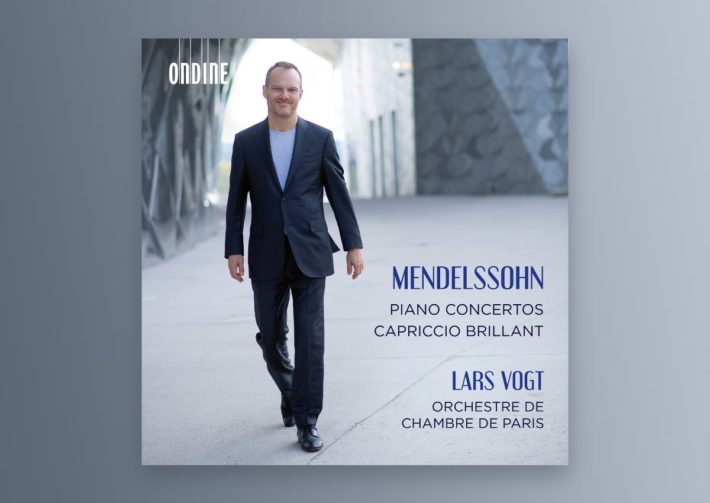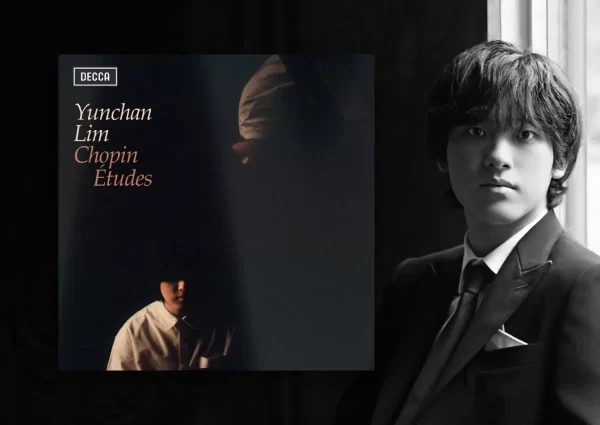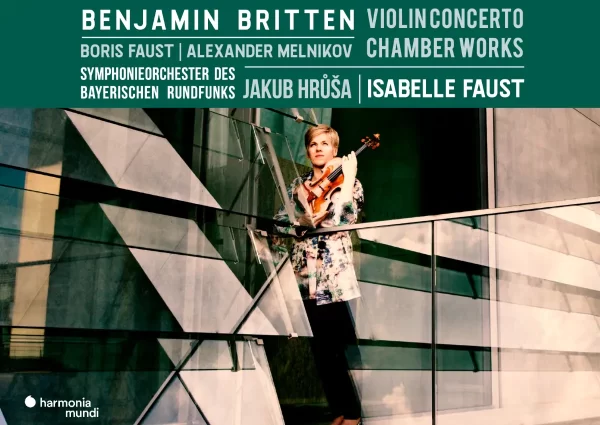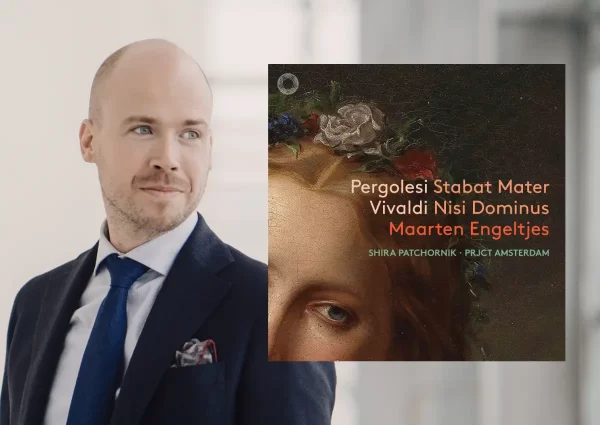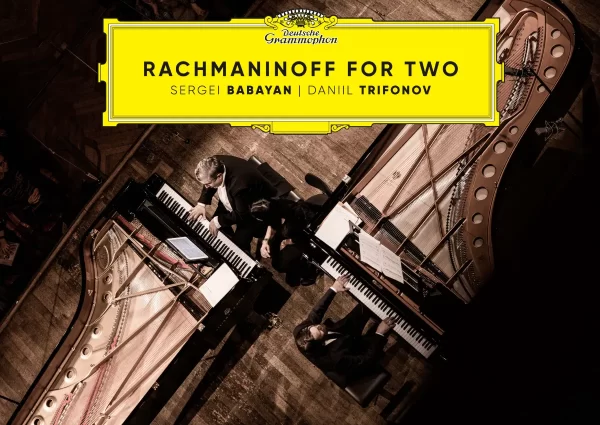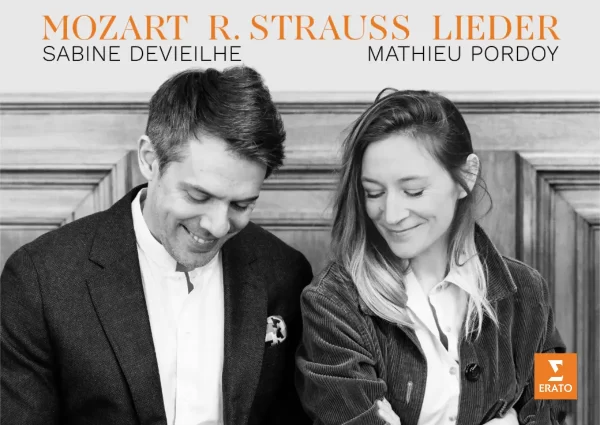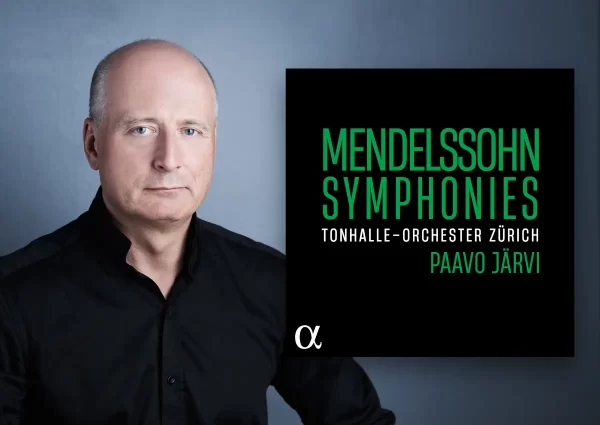In April 2020 I wrote a largely positive review of Lars Vogt’s recording of Brahms’ Second Piano Concerto, in which he played and conducted the Royal Northern Sinfonia. He has now turned his attention to three works for piano and orchestra by Mendelssohn, again conducting from the keyboard, this time leading the Orchestre de chambre de Paris. He became their new Music Director in July 2020, and this is the first recording of this new partnership.
The album opens with a propulsive reading of the first concerto. Written during in 1830-31, the music’s rather incessant cheeriness surely reflects the composer’s intensely romantic feelings for the dedicatee of the work, pianist Delphine von Schauroth. There is a winning drive and energy, winds of the orchestra well to the fore, the smaller than normal string section agile and athletic. The piano writing is not overtly flashy, but certainly requires bravura technique, and Vogt is more than equal to every technical hurdle. Listen to the effortlessness with which he tosses off each cascading run in the opening minutes of the final Presto (Tr. 3), or the subtle nuances of color drawn from the instrument around 1’50” in the same movement. The Orchestre Chambre de Paris, who recently released an outstanding set of Haydn’s Paris Symphonies, are at one with Vogt, establishing a playful yet conversational give and take between them. A key facet of their Haydn was the chamber-music like intimacy and sensitivity they brought to their performances, a sign that they really listen to one another. Those same qualities, readily apparent here, make the interplay between orchestra and soloist particularly gratifying.
Some commentators have accused this music of being emotionally superficial, but Vogt’s readings persuade otherwise. Listen to the somber forlorn mood these performers establish in the opening of the second concerto’s first movement. And in the slow movements of both concertos, Vogt uncovers levels of emotional depth untapped in other performances. At the beginning of the second concerto’s “Adagio: Molto sostenuto, Vogt seems to be musing privately, gently interrupted by a solemn but lyrically sung orchestral chorale. The piano then responds with music that could easily be another of the composer’s ‘song without words’, Vogt’s delicate tone and subtle rubato bringing out a sense of hidden pain or desire. And how beautifully the orchestra joins with Vogt to establish a sense of acceptance and peace to end the movement.
Related Posts
- Review: Janáček – Piano Works – Lars Vogt
- Review: Brahms – Piano Concerto No. 1, Four Ballads – Lars Vogt
- Review: Mendelssohn – Songs Without Words, Vol. 1 – Donohoe
The recital finishes with an engaging reading of the “Capriccio Brillant” for solo piano. Its opening arpeggiated piano chords suggest the strumming of a guitar, soon answered by yet another Mendelssohnian melody of beguiling beauty in the winds. At 2’00” the music moves into high gear (allegro con fuoco) with an energetic first theme, soon answered by a quasi-martial second theme at 4’00”. The music is all high spirits up to the end, Vogt and his players playing with playful good humor and tremendous verve.
The concertos are well served on disc. András Schiff’s recording with the Bavarian Radio Symphony Orchestra led by Dutoit might be difficult to find but has excellent sound and includes several of the “Lieder ohne Worte.” Perahia’s performances with the Academy of St. Martin in the Fields and Neville Marriner are infectious and brilliantly played, but Sony’s sound is disappointing. If one wants a full-sized string sound, Gewandhaus Orchestra led by Blonstedt has plenty of panache and fulsome richness, and Thibaudet has a genuine flair for this repertoire. And if performances on period instruments are of interest, Brautigam and the Kölner Akademie under Michael Alexander Willens are thrilling.
The liner notes consist of an interview with Vogt in which his enthusiasm for this music is clear, as he offers his personal ideas about its mood and meaning. Still, could we not also have notes of the music itself? And at 51 minutes, there is plenty of time left for the “Rondo Brilliant” or perhaps solo repertoire (as in Vogt’s recordings of the Brahms’ concertos). Nevertheless, there is a full color picture in the booklet that shows a jovial orchestra with its new artistic director, and that connection is conveyed in the music making heard here. I look forward to hearing more from this team soon.

Mendelssohn – Piano Concertos
Lars Vogt – Piano/Conductor
Orchestre de Chambre de Paris
Ondine, CD 1400-2
Recommended Comparisons
Read more classical music reviews or visit The Classic Review Amazon store
Follow Us and Comment:
Get our periodic classical music newsletter with our recent reviews, news and beginners guides.
We respect your privacy.

